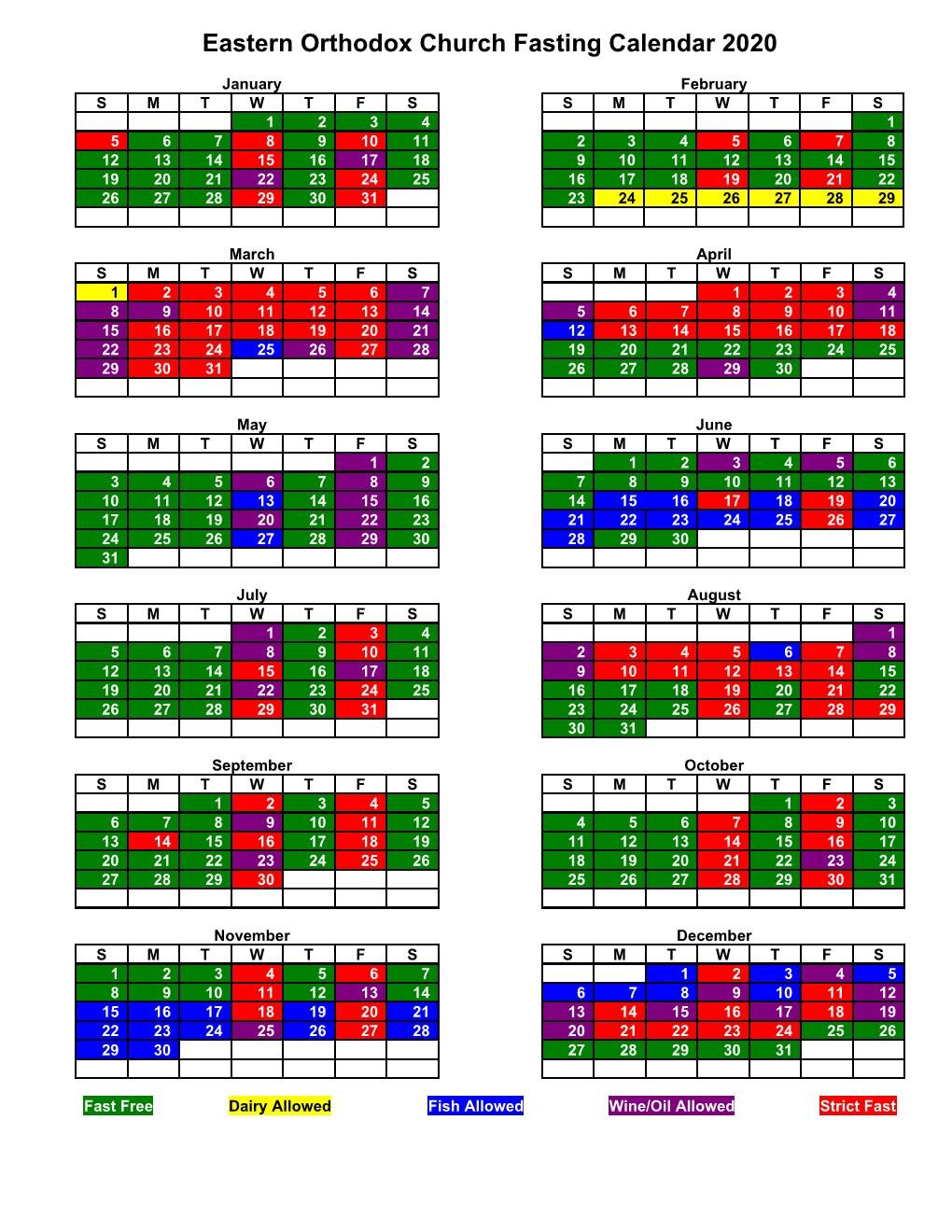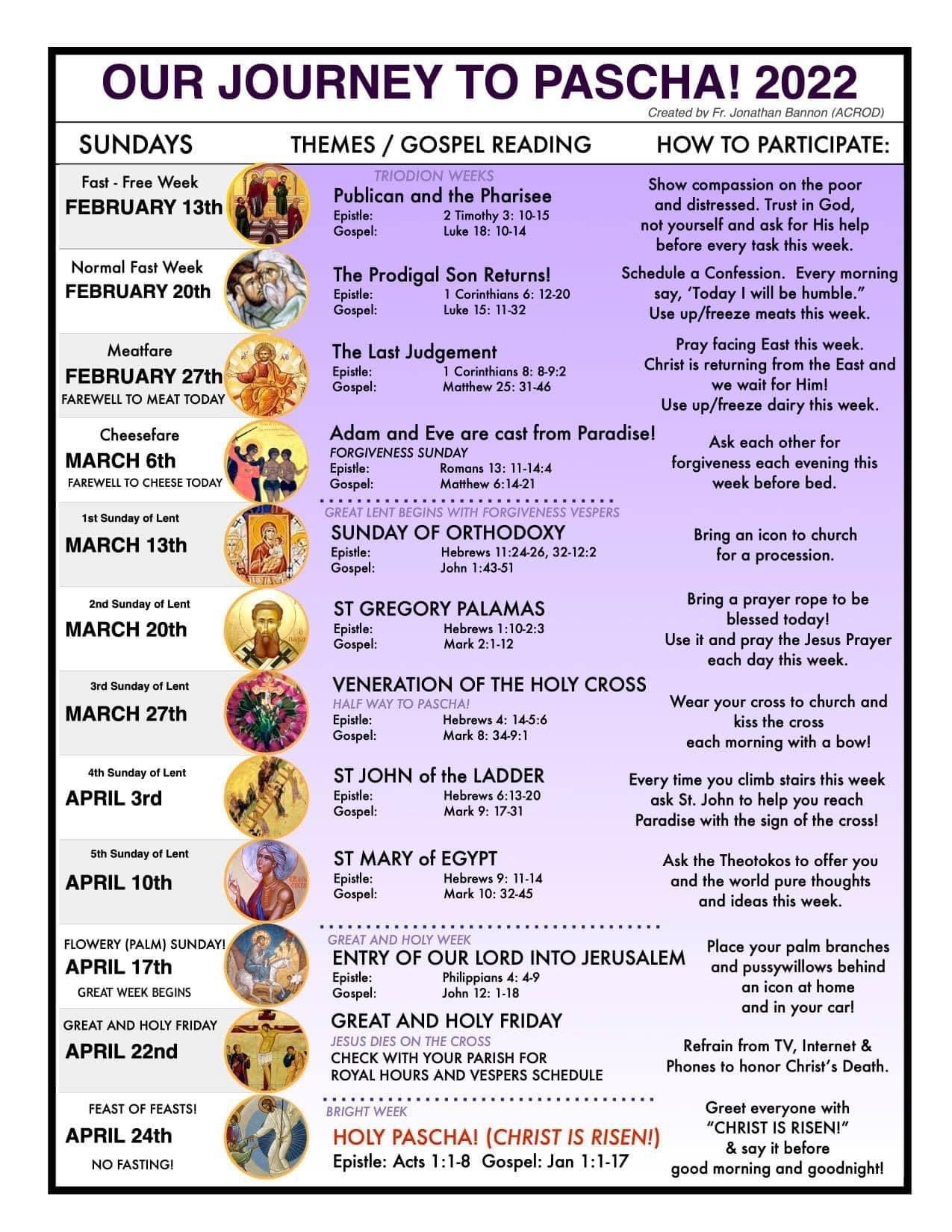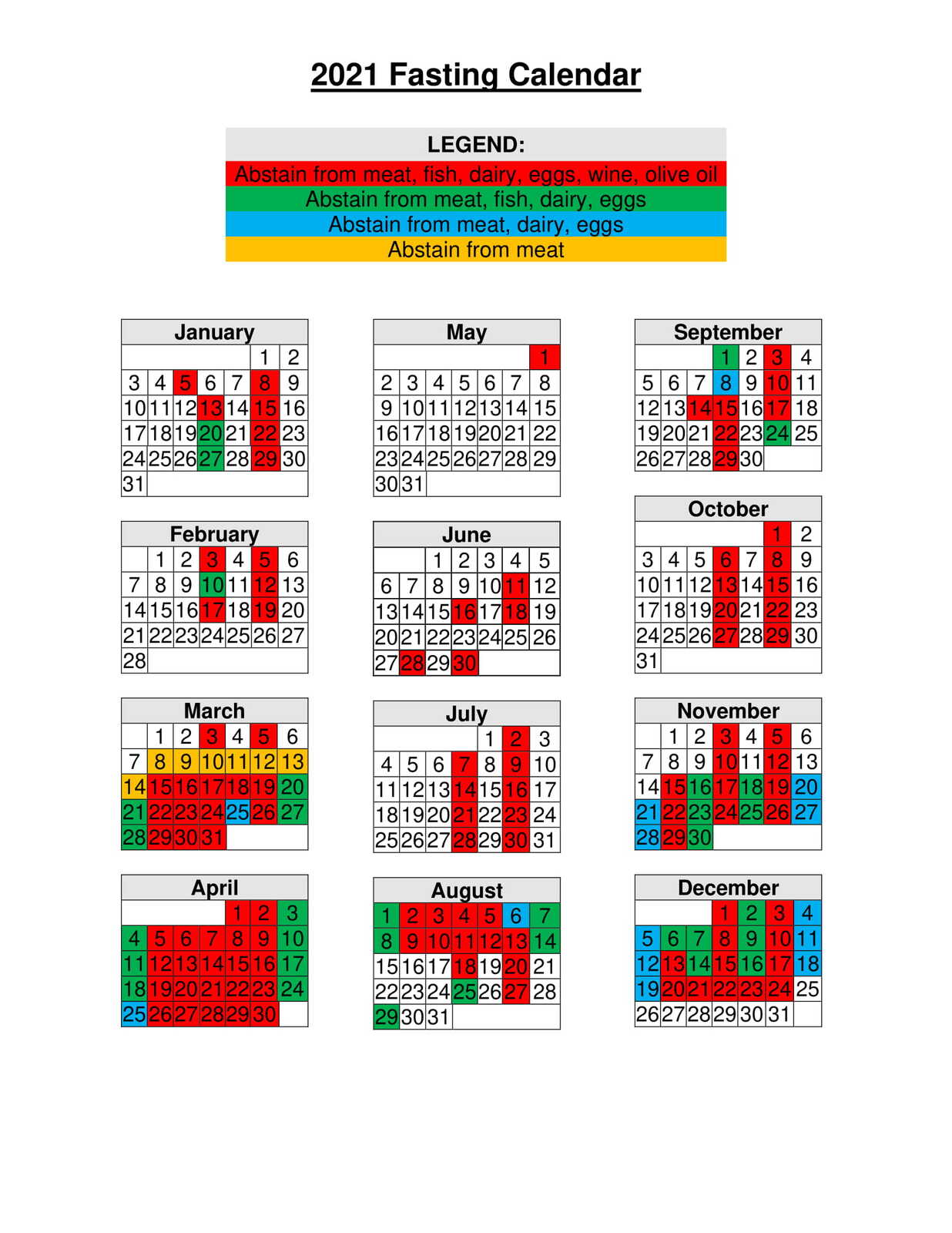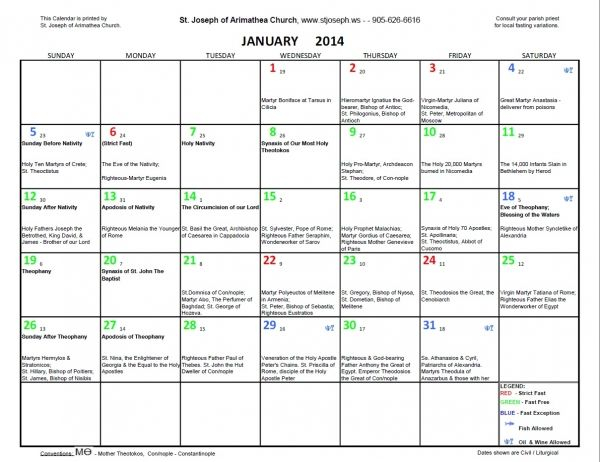Orthodox Church Fasting Calendar: A Guide to Spiritual Renewal
Related Articles: Orthodox Church Fasting Calendar: A Guide to Spiritual Renewal
- Calendar Week 4 Of 2025: A Comprehensive Overview
- Printable 2025 Calendar 8 1/2 X 11: The Ultimate Guide
- 2025 Calendar With Holidays Excel: A Comprehensive Guide
- F1 2025 Calendar Release Date: Unveiling The Future Of Motor Racing
- Calendario 2025 Febrero
Introduction
In this auspicious occasion, we are delighted to delve into the intriguing topic related to Orthodox Church Fasting Calendar: A Guide to Spiritual Renewal. Let’s weave interesting information and offer fresh perspectives to the readers.
Table of Content
Video about Orthodox Church Fasting Calendar: A Guide to Spiritual Renewal
Orthodox Church Fasting Calendar: A Guide to Spiritual Renewal

Fasting, an integral aspect of Orthodox Christian spirituality, holds a significant place in the Orthodox Church calendar. It is a practice that involves abstaining from certain foods and indulgences for a specific period, serving as a means of spiritual purification, self-discipline, and communion with God. The Orthodox Church follows a comprehensive fasting calendar that guides believers throughout the year, offering opportunities for spiritual growth and renewal.
Purpose and Benefits of Fasting
Fasting in the Orthodox Church is not merely a physical practice but a holistic approach that encompasses the mind, body, and spirit. Its primary purpose is to cleanse the soul from sin and passions, drawing individuals closer to God. Through fasting, believers seek to:
- Repent and seek forgiveness: Fasting helps individuals recognize their shortcomings and seek God’s mercy.
- Discipline the body and mind: By abstaining from certain foods and pleasures, fasting strengthens willpower and trains the mind to resist temptations.
- Develop humility and compassion: Fasting fosters a sense of empathy and compassion towards those who are less fortunate.
- Deepen prayer and spiritual reflection: Reduced food intake allows for greater clarity of thought and enhanced focus on prayer and spiritual practices.
Types of Fasts
The Orthodox Church observes several types of fasts, each with its own duration and restrictions:
- Great Lent: The most significant fast of the year, lasting approximately 40 days before Easter.
- Nativity Fast: Precedes the feast of the Nativity of Christ, beginning on November 15th and ending on December 24th.
- Apostles’ Fast: Observed before the feast of the Holy Apostles Peter and Paul, from June 13th to June 29th.
- Dormition Fast: Precedes the feast of the Dormition of the Theotokos, from August 1st to August 15th.
- Weekly Fasts: Every Wednesday and Friday throughout the year, except during certain periods like Paschal Week.
Foods Allowed and Prohibited
During fasting periods, certain foods are permitted while others are prohibited. The following guidelines are generally observed:
- Allowed: Vegetables, fruits, legumes, whole grains, nuts, seeds, olive oil, seafood (on certain days)
- Prohibited: Meat, poultry, fish (except on designated days), dairy products, eggs, alcohol
Exceptions and Dispensations
While the fasting calendar provides general guidelines, exceptions and dispensations may be granted in certain circumstances, such as:
- Health reasons: Individuals with health conditions may be exempt from fasting upon consultation with their physician and spiritual advisor.
- Special occasions: Certain feast days and celebrations allow for a relaxation of fasting rules.
- Children, pregnant women, and the elderly: Fasting guidelines may be modified for these groups based on their specific needs.
Spiritual Preparation for Fasting
Before embarking on a fast, it is essential to prepare spiritually. This involves:
- Setting clear intentions: Determine the specific spiritual goals you wish to achieve through fasting.
- Seeking guidance: Consult with your priest or spiritual advisor for guidance and support.
- Prayer and reflection: Increase your prayer and meditation practices to deepen your connection with God.
- Gradual transition: Gradually reduce your food intake leading up to the fast to minimize discomfort.
Observing the Fast
During the fasting period, it is important to:
- Adhere to the prescribed dietary restrictions: Follow the fasting guidelines as outlined by the Church.
- Focus on spiritual growth: Dedicate time to prayer, reading, and other spiritual practices.
- Practice self-discipline: Resist temptations and distractions that may hinder your spiritual journey.
- Seek support from others: Join with fellow believers in fasting and prayer groups for encouragement and accountability.
Breaking the Fast
After completing a fast, it is important to break it gradually to avoid digestive issues. Gradually increase your food intake and avoid overeating. Continue to focus on prayer and spiritual reflection, integrating the lessons learned during the fasting period into your daily life.
Conclusion
The Orthodox Church fasting calendar provides a framework for spiritual renewal and transformation. By embracing the practice of fasting with humility, discipline, and a sincere desire for communion with God, believers can experience profound spiritual growth, strengthen their relationship with Christ, and live more fulfilling lives in accordance with the teachings of the Orthodox faith.








Closure
Thus, we hope this article has provided valuable insights into Orthodox Church Fasting Calendar: A Guide to Spiritual Renewal. We appreciate your attention to our article. See you in our next article!